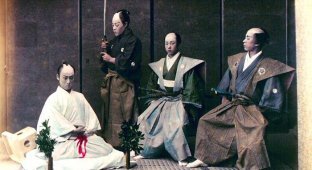What happened to a samurai if he refused to commit hara-kiri? (5 photos)
The seppuku ritual is the most famous Asian tradition, firmly associated with medieval Japanese romance. inquisitive minds probably wondered: did the samurai have a choice to avoid death? Why did the Japanese say goodbye to life so easily? What happened to the wife a warrior who committed suicide? What is the difference between hara-kiri and seppuku? 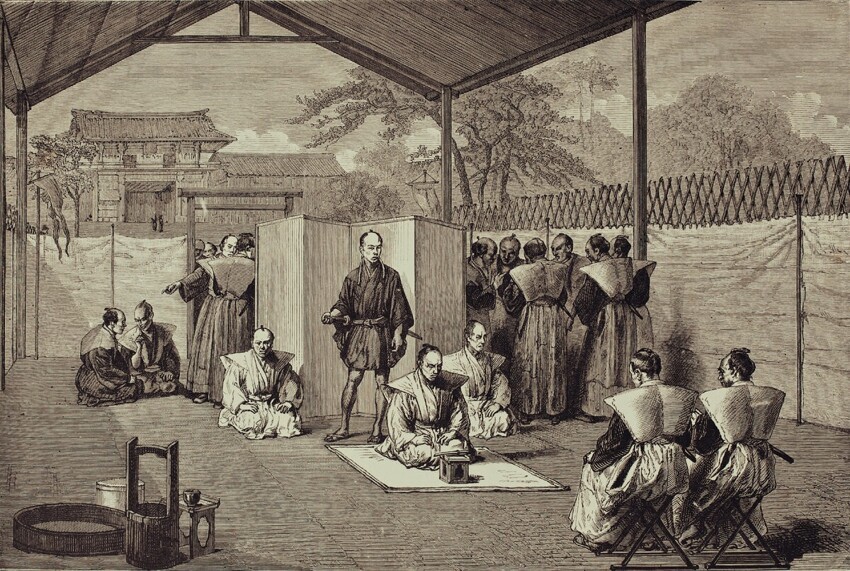
Harakiri or seppuku?
“In a world where pretense is all around, only death is always sincere” (Yamamoto Tsunetomo, samurai of the Nabeshima clan, 17th century)
Harakiri and seppuku are absolute synonyms and, with point of view of Japanese writing, are written in two identical hieroglyphs - 切 and 腹.
The difference lies in the sequence of characters. In a word “hara-kiri” is the first hieroglyph for “belly”, and in the word “seppuku” - "cut". It is believed that the word "hara-kiri" is colloquial, and "seppuku" used only in literature and official speech.
What is the meaning of hara-kiri?
"The samurai must always remember - day and night, eating every morning meal and seeing off the night of the old year - he must die" (Bushido, Introduction) 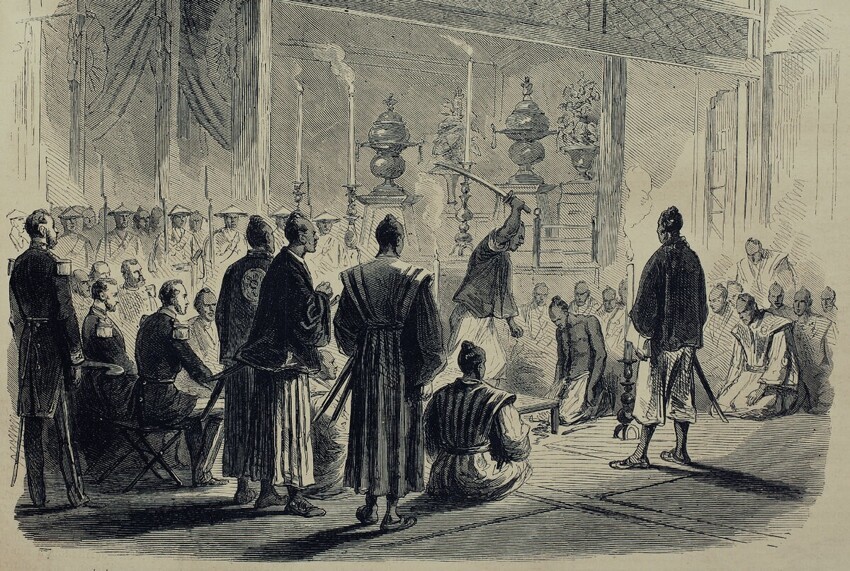
The tradition of hara-kiri originated in the 12th century and was directly associated with the relationship between the vassal and the sovereign - the samurai and the daimyo. The practice was applied in cases of a death sentence to a warrior as a result of his betrayal or slander.
Sometimes the samurai was given the opportunity to follow the master, if the daimyō died prematurely. Such an act was considered good tone.
In this case, with cross-shaped movements, the samurai exposed your belly. From a Buddhist point of view, it was in the stomach that the soul was person. Thus, "revealing" his inner world, the vassal seemed to prove his loyalty and innocence.
But the idea of respect for honor appeared much later. At At the same time, the concept of the purity of the reputation of people were different. Some finished life by suicide due to verbal abuse, which they could not respond in time, others felt great being announced outlaws and engaging in robbery. 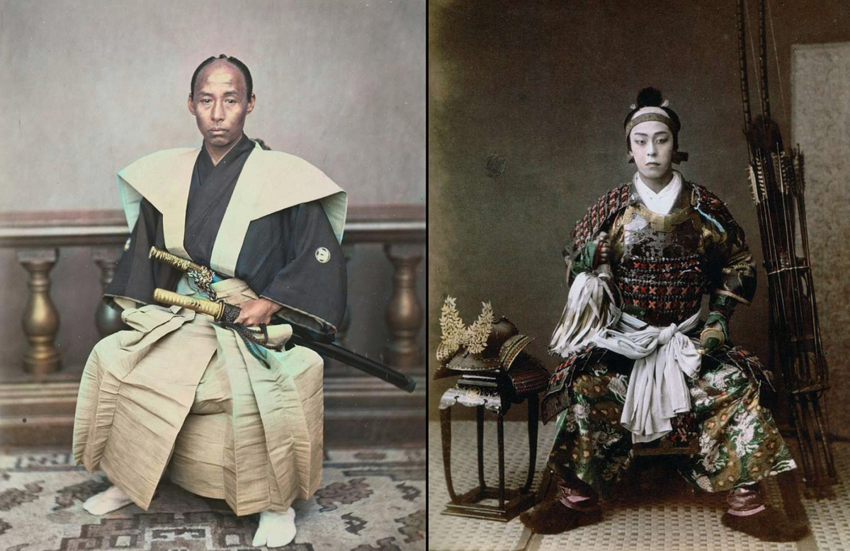
How was the ritual?
Seppuku is a well-thought-out ritual that regulates each the last move of the samurai. In a way, suicide was elevated to the rank of art and recognized as an exclusive privilege aristocracy.
The doomed man dressed in white clothes, symbolizing purity of intentions, and sat down in the seiza posture. The assistant brought him a table with paper and stationery. Samurai wrote his last poems - waka. The poem was given great attention - it reflected inner peace and maturity of character.
After the "poetic moment" the samurai drank sake - certainly at 2 reception and four sips. The word "four" in Japanese is consonant with the word "death". 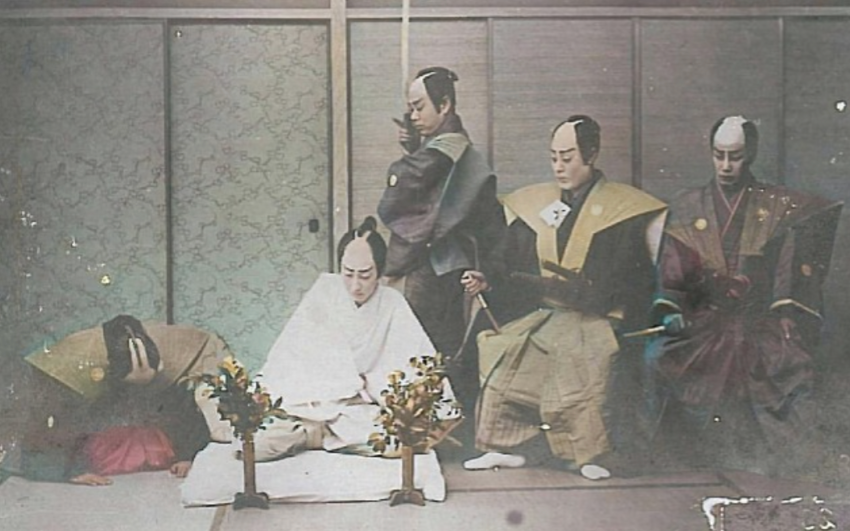
In the end, he threw off his outer clothes, neatly tucking the sleeves under the knees, and completed the ritual. Helper, usually loyal friend, finished off the samurai with a katana, depriving him of torment.
There was a small exception. If the samurai was too young and indecisive, they gave him a discount. Instead of a dagger, he spent to your belly like a fan. In this case, all responsibility fell on his assistant with a katana.
What happened to a samurai if he refused to do hara-kiri?
Contrary to popular belief, the mass ritual of seppuku is not became. Except for outright dishonor or inevitable execution, a warrior could save your life.
In other cases, for example, a crime committed, received disgrace or a direct order from the daimyo, a man has no choice remained. He could be executed forcibly and then his name was covered shame forever. The family of such a samurai shared his shame, becoming social outcasts. In this case, there was even a female version of hara-kiri - jigai. 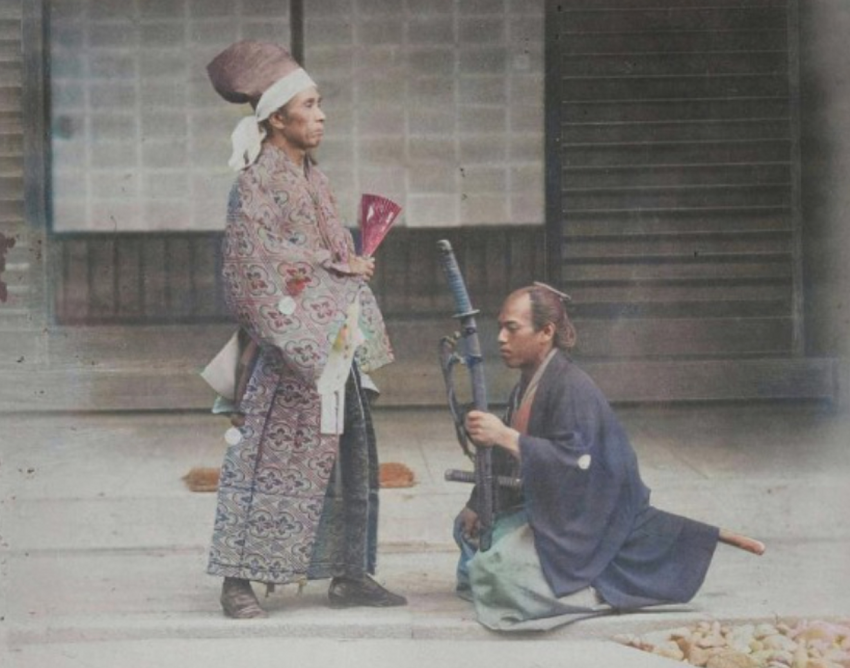
The world in the Middle Ages was very small, especially in Japan. An aristocrat who has lost respect from others cannot begin to live again. could. All doors were closed to him. However, the Japanese easily said goodbye to life. This was the peculiarity of the local culture - the body of a samurai wholly owned by the daimyō.
In Europe and the Middle East, where the Abrahamic religion, the body belonged only to God, and therefore only the Lord determined the time of a person's death. Here, suicide has always been recognized as a terrible thing. sin.












